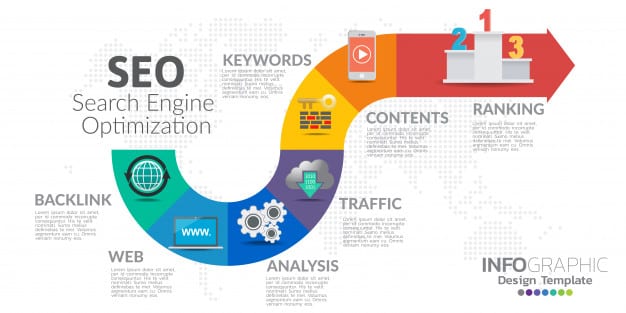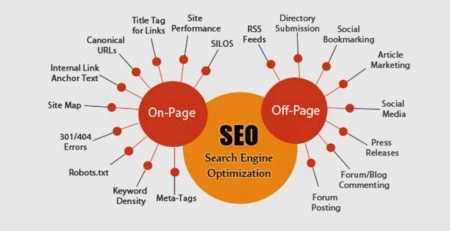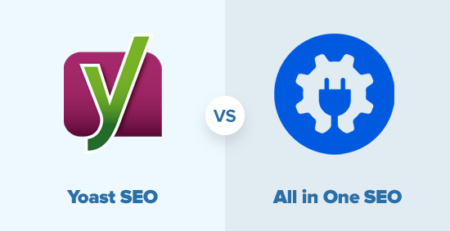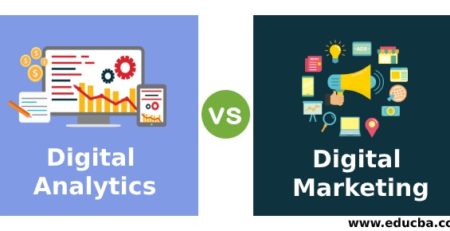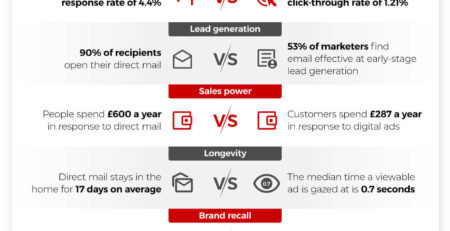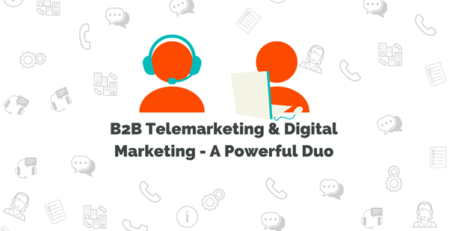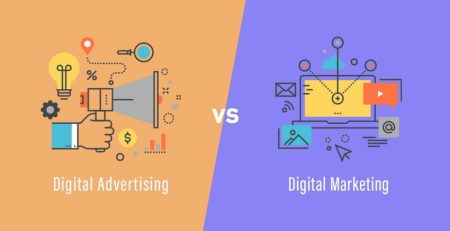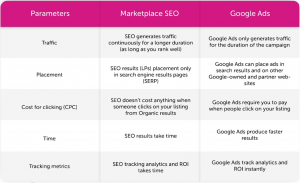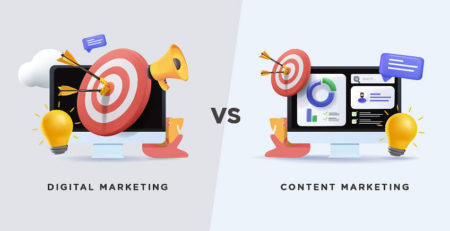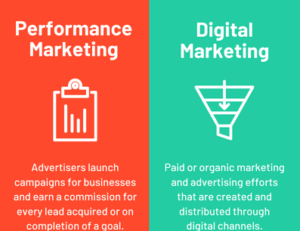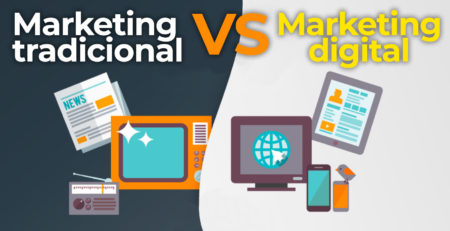Seo Vs Digital Marketing: Which Is Better For You In 2023?
Are you curious about the differences between SEO and digital marketing? Let’s dive in and explore these two exciting fields. SEO, which stands for search engine optimization, is all about improving a website’s visibility on search engines like Google. Digital marketing, on the other hand, encompasses a broader range of activities aimed at promoting a brand or product online. So, what sets SEO and digital marketing apart? Let’s find out!
When it comes to SEO, the main focus is on optimizing a website’s structure, content, and keywords to rank higher in search engine results. By doing so, businesses can attract organic traffic and increase their online presence. Digital marketing, on the other hand, takes a more holistic approach. It includes various strategies like social media marketing, email campaigns, content marketing, and paid advertising, all aimed at reaching and engaging with a target audience.
So, why is SEO so important in the world of digital marketing? Well, search engines are often the starting point for people’s online journeys. Whether they’re looking for information, products, or services, they turn to search engines to help them find what they need. By optimizing their websites for search engines, businesses can ensure they appear in relevant search results, increasing the chances of attracting valuable traffic and potential customers.
Now that we have a basic understanding of SEO and digital marketing, it’s time to delve deeper into each area and explore their unique characteristics and benefits. So, buckle up and get ready to discover the exciting world of SEO and digital marketing!
When it comes to enhancing online presence, both SEO and digital marketing play crucial roles. While SEO focuses on optimizing websites for search engines, digital marketing encompasses various online strategies to promote products and services. Let’s compare five key features of SEO and digital marketing:
| SEO | Digital Marketing |
| Improves organic search visibility | Utilizes multiple channels for promotion |
| Targets specific keywords | Targets specific audience segments |
| Focuses on on-page and off-page optimization | Incorporates SEO, social media marketing, email marketing, etc. |
| Long-term strategy for sustainable growth | Flexible approach for quick results |
| Relies on search engine algorithms | Relies on data-driven insights and consumer behavior |
While SEO and digital marketing have different focuses, they are both essential elements of a comprehensive online marketing strategy. Understanding their unique features can help businesses make informed decisions to achieve their goals.
Key Takeaways: SEO Vs Digital Marketing
- SEO focuses on optimizing websites to rank higher in search engine results.
- Digital marketing encompasses various online marketing strategies to promote products or services.
- SEO primarily deals with organic traffic, while digital marketing includes paid advertising.
- Both SEO and digital marketing are essential for online visibility and business growth.
- Understanding the differences between SEO and digital marketing helps create effective marketing strategies.
When it comes to SEO Vs Digital Marketing, it’s crucial to understand the key takeaways. Let’s break it down for you:
- SEO is all about making websites appear higher in search results, while digital marketing focuses on promoting products or services through various online strategies.
- SEO mainly relies on organic traffic, which means people naturally finding your website through search engines. On the other hand, digital marketing also includes paid advertising to reach a larger audience.
- Both SEO and digital marketing are essential for online visibility and business growth. SEO helps improve your website’s organic rankings, while digital marketing ensures your products or services get maximum exposure to potential customers.
- By understanding the differences between SEO and digital marketing, you can create effective marketing strategies tailored to your business needs.
- In conclusion, while SEO is a subset of digital marketing, they are not the same. Both play significant roles in establishing an online presence and driving relevant traffic to your website.
Comparing SEO vs Digital Marketing
When it comes to online marketing, two strategies take center stage: SEO (Search Engine Optimization) and Digital Marketing. Both play crucial roles in boosting website visibility, driving traffic, and increasing business growth. However, these two approaches have distinct differences and offer unique benefits. In this article, we will delve into the world of SEO and Digital Marketing, exploring their key features, user experiences, pros and cons, price points, and ultimately determining which is better for your business needs.
Overview of SEO
SEO is the practice of optimizing a website to improve its visibility and ranking on search engine result pages (SERPs). It involves various techniques, such as keyword research, on-page optimization, link building, and content creation, to attract organic traffic from search engines like Google. The goal of SEO is to make your website appear higher in the organic (non-paid) search results, driving targeted traffic and generating potential leads.
In the world of SEO, having high-quality, relevant content is key. By incorporating targeted keywords and providing valuable information to users, websites can improve their search engine rankings. Additionally, SEO helps ensure that your website is technically optimized for search engines, improving loading speed, mobile-friendliness, and overall user experience.
One of the primary advantages of utilizing SEO is the long-term benefits it offers. Once your website ranks well on search engines, it can continue to attract organic traffic without the need for ongoing advertising or paid campaigns. In today’s digital landscape, where competition is fierce, SEO is vital for businesses aiming to establish a strong online presence and attract potential customers.
Overview of Digital Marketing
Digital Marketing is a comprehensive approach to online marketing that encompasses various channels and strategies to promote a brand or business. It goes beyond SEO and includes paid advertising, social media marketing, email marketing, content marketing, and more. Digital marketing aims to reach a broad audience, engage with potential customers, and drive conversions.
Unlike SEO, which focuses on organic traffic, Digital Marketing enables businesses to target specific demographics using paid advertising platforms like Google Ads, Facebook Ads, or Instagram Ads. This means that businesses can strategically create and display ads to reach their target audience based on factors such as location, age, interests, and browsing behavior.
Furthermore, Digital Marketing offers the advantage of immediate results. With paid advertising campaigns, businesses can quickly generate traffic and leads by appearing in prominent positions on search engine result pages or in users’ social media feeds. Digital Marketing allows for precise tracking and measurement of campaigns, making it easier to optimize and adjust strategies in real-time for better results.
Key Features Compared
In this section, we will compare the key features of SEO and Digital Marketing to better understand their similarities, differences, and which approach is better suited for specific business goals.
Targeting
SEO: SEO targets organic traffic through search engines. It focuses on optimizing a website to rank higher in search engine results for relevant keywords. SEO aims to attract users actively looking for specific information or products, making it highly targeted and relevant.
Digital Marketing: Digital Marketing allows businesses to target specific demographics and interests through paid advertising. With digital marketing, you can tailor your ads to appear to a specific audience segment, increasing the chances of reaching the right people at the right time.
Cost
SEO: SEO is a long-term strategy that requires upfront investment in time, resources, and expertise. While the cost of SEO can vary depending on the complexity of your website and the competitiveness of your industry, the ongoing expenses are often lower compared to Digital Marketing in the long run.
Digital Marketing: Digital Marketing involves budgeting for paid ads, which can vary greatly depending on factors like your industry, target audience, and ad performance. While it offers immediate results, it also requires ongoing investment to maintain visibility and generate leads.
Timing
SEO: SEO is a long-term strategy that takes time to see significant results. It requires consistent effort and patience to build a strong online presence and climb the search engine rankings. While SEO efforts may not yield immediate results, they can provide long-lasting benefits once established.
Digital Marketing: Digital Marketing, particularly paid advertising, can yield immediate results in terms of website traffic and conversions. With the right targeting and compelling ad creative, businesses can quickly generate leads and sales. However, the results may not be sustainable without ongoing investment.
Visibility
SEO: SEO aims to improve a website’s organic visibility on search engine result pages. By optimizing your website for search engines, you increase the chances of appearing in relevant search queries, improving visibility to potential customers. Higher visibility can lead to increased organic traffic and brand exposure.
Digital Marketing: Digital Marketing, especially paid ads, provides instant visibility for your brand or business. By investing in paid advertising, you can secure prime positions in search engine results or display ads on social media platforms, ensuring your brand is easily seen by your target audience.
User Experience
When it comes to user experience, both SEO and Digital Marketing have their impact on how users interact with your website and brand.
SEO: SEO focuses on optimizing a website for search engines as well as users. By creating high-quality content, improving site speed and mobile-friendliness, and ensuring intuitive navigation, SEO enhances the overall user experience on your website. A seamless and user-friendly experience leads to higher engagement, lower bounce rates, and increased likelihood of conversions.
Digital Marketing: Digital Marketing, particularly paid advertising, can drive targeted traffic to your website. However, it’s important to ensure that your landing pages are optimized for a smooth user experience. A poorly designed landing page or a confusing user journey can result in high bounce rates and wasted ad spend. Therefore, it is crucial to align your Digital Marketing efforts with a seamless user experience to maximize conversions and ROI.
Pros and Cons
Pros of SEO
- Long-term organic visibility.
- Increased brand credibility.
- Cost-effective in the long run.
Cons of SEO
- Time-consuming to see significant results.
- Requires ongoing effort and expertise.
- Subject to algorithm updates and competition.
Pros of Digital Marketing
- Immediate results and visibility.
- Precise targeting to reach specific audiences.
- Ability to track and measure campaign performance.
Cons of Digital Marketing
- Costly, particularly for highly competitive industries.
- Results may not be sustainable without ongoing investment.
- Requires continuous optimization and monitoring.
Price Comparison
When it comes to price comparison, it’s important to consider that both SEO and Digital Marketing can vary greatly in terms of cost depending on factors like the industry, competition, target audience, and specific goals. While SEO generally involves upfront costs for website optimization and ongoing efforts for content creation and link building, Digital Marketing requires budgeting for ad spend, campaign management, and creative development.
It is advisable to consider your business goals, industry, and available resources before determining your budget allocation for either SEO or Digital Marketing. Consulting with industry professionals or digital marketing agencies can provide valuable insights and help create a tailored strategy to maximize your return on investment.
SEO vs Digital Marketing – Feature Comparison
| Feature | SEO | Digital Marketing |
|---|---|---|
| Targeting | Organic traffic through search engines | Precise targeting through paid advertising |
| Cost | Upfront investment with lower ongoing expenses | Paid campaigns with ongoing investment |
| Timing | Long-term strategy with gradual results | Immediate results with ongoing investment |
| Visibility | Improvement in organic search result rankings | Immediate visibility through paid advertising |
Which is Better – SEO or Digital Marketing?
Deciding between SEO and Digital Marketing ultimately depends on your specific business goals, available resources, and target audience. Both approaches have their advantages and are effective in their own ways. However, considering certain factors can help determine which is better suited for your needs.
For businesses looking for long-term, sustainable visibility and organic traffic, SEO is a valuable investment. While it requires patience, expertise, and ongoing efforts, SEO can provide lasting results and establish a strong online presence. It is particularly effective for businesses in niche industries or those aiming to build credibility and authority in their respective markets.
On the other hand, for businesses seeking immediate results, precise targeting, and the ability to scale campaigns for quick growth, Digital Marketing can be the preferred choice. With paid advertising, businesses can reach their target audience effectively, generate leads, and increase conversions in a short amount of time. Digital Marketing is especially beneficial for businesses with a specific promotion, short-term campaigns, or time-sensitive offers.
Three Reasons to Choose SEO:
- Long-term, sustainable visibility and organic traffic.
- Establishment of credibility and authority in your industry.
- Cost-effective strategy in the long run.
Ultimately, the decision between SEO and Digital Marketing depends on your business goals, available resources, and the level of investment you are willing to make. In some cases, a combination of both strategies may be the most effective approach. Consulting with industry professionals or digital marketing agencies can provide valuable insights tailored to your specific business needs and goals.
Frequently Asked Questions
When it comes to the world of online marketing, there are many terms and concepts to understand. Among them, two vital aspects are SEO and digital marketing. Both play a significant role in improving online visibility and driving traffic to websites. In this section, we’ll answer some frequently asked questions about the differences between SEO and digital marketing.
1. What is the main difference between SEO and digital marketing?
SEO, or Search Engine Optimization, focuses on improving a website’s visibility in search engine results pages. It involves optimizing the website’s structure, content, and overall performance, with the intent of ranking higher in organic search results. On the other hand, digital marketing refers to a broader umbrella term that encompasses all forms of online marketing, including SEO, social media marketing, email marketing, and paid advertising.
While SEO is a crucial component of digital marketing, it is just one element in a comprehensive strategy. Digital marketing involves using multiple channels and techniques to reach a target audience and promote products or services across the digital landscape.
2. Can you have digital marketing without SEO?
Yes, it is possible to have a digital marketing strategy without focusing explicitly on SEO. While SEO is immensely valuable in driving organic traffic to a website, some businesses may choose to prioritize other digital marketing channels, such as social media marketing or paid advertising, depending on their goals and target audience. However, it’s important to note that SEO can significantly enhance the effectiveness of digital marketing by improving organic search visibility and increasing the chances of website conversions.
In an ideal scenario, a comprehensive digital marketing strategy should include elements of SEO, along with other channels, to maximize the online presence and overall success of a business.
3. Which one is more important: SEO or digital marketing?
There is no definitive answer to this question, as both SEO and digital marketing are important in their own ways. SEO plays a critical role in driving organic traffic and elevating a website’s visibility, while digital marketing encompasses a range of strategies that go beyond just SEO. Ultimately, the importance of each depends on the specific goals and needs of a business.
For businesses looking to establish a strong online presence and increase visibility on search engines, SEO is of paramount importance. However, digital marketing as a whole offers a more comprehensive approach to reaching and engaging with target audiences across various online platforms.
4. Can digital marketing exist without SEO?
Yes, digital marketing can exist without SEO. As digital marketing encompasses several channels and tactics, a business can utilize other strategies like social media marketing, content marketing, email marketing, and paid advertising to promote their products or services. However, it is important to note that SEO provides long-term benefits by improving organic search visibility and driving sustainable traffic to a website. It helps in establishing a strong online presence and is a valuable component of any digital marketing strategy.
While it’s possible to have a digital marketing campaign without SEO, integrating SEO techniques can amplify the effectiveness and long-term success of the marketing efforts.
5. How does SEO fit into the broader scope of digital marketing?
SEO plays a crucial role in the broader scope of digital marketing. It is an essential element of any comprehensive digital marketing strategy. SEO focuses on improving a website’s visibility and organic search rankings, which is fundamental to driving targeted traffic to a website. This, in turn, enhances the overall effectiveness of digital marketing efforts.
By optimizing a website’s structure, content, and user experience, SEO helps businesses reach their target audience through search engines. It complements other digital marketing channels like social media marketing, content marketing, and paid advertising by driving organic traffic, increasing brand visibility, and improving the chances of conversions. In short, SEO is a vital piece of the puzzle when it comes to achieving success in the broader context of digital marketing.
Digital Marketing Vs SEO | What Is The Difference Between Digital Marketing And SEO
Summary:
So, let’s sum it all up! In this article, we talked about SEO and digital marketing, and how they are different but also work together. SEO helps websites show up higher in search results on search engines like Google. It’s all about making websites more appealing to these search engines. On the other hand, digital marketing is like a big umbrella that covers many things, like social media, email marketing, and even SEO. It’s all about promoting products or services online and reaching more people.
To put it simply, SEO is a part of digital marketing, but digital marketing is much bigger. SEO focuses on optimizing your website so that it can be found by people searching for related things, while digital marketing is a broader approach to promoting and advertising products or services. Both are important for businesses to grow online because having a great website is not enough if no one can find it. Digital marketing helps bring people to your website through different channels.
In conclusion, SEO and digital marketing are both important for businesses to succeed online. By using SEO techniques, you can make your website more visible, while digital marketing strategies help you promote your products or services to a wider audience. So, if you want your website to shine and your business to thrive, a combination of both SEO and digital marketing is the way to go!

